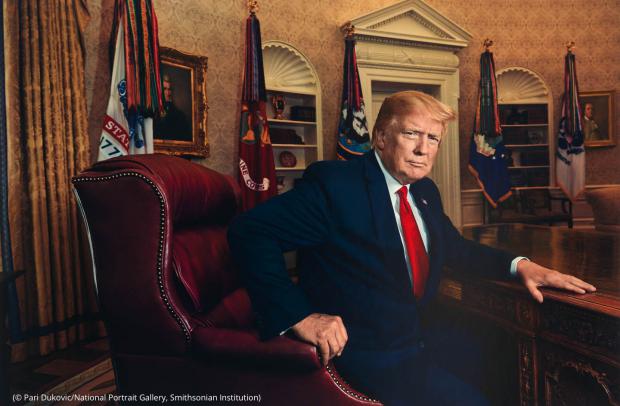
Breaking News
 My breakthrough investigation into sinister 'sonic' brain attacks on Americans reveals damni
My breakthrough investigation into sinister 'sonic' brain attacks on Americans reveals damni
 Rachel Maddow makes humbling admission about career as Jen Psaki takes over MSNBC...
Rachel Maddow makes humbling admission about career as Jen Psaki takes over MSNBC...
 Trump reveals what everyday family items he's 'looking at' for potential tariff exemptio
Trump reveals what everyday family items he's 'looking at' for potential tariff exemptio
 Thousands of kids exposed to autism-linked toxin amid public health crisis in Wisconsin
Thousands of kids exposed to autism-linked toxin amid public health crisis in Wisconsin
Top Tech News
 Can Tesla DOJO Chips Pass Nvidia GPUs?
Can Tesla DOJO Chips Pass Nvidia GPUs?
 Iron-fortified lumber could be a greener alternative to steel beams
Iron-fortified lumber could be a greener alternative to steel beams
 One man, 856 venom hits, and the path to a universal snakebite cure
One man, 856 venom hits, and the path to a universal snakebite cure
 Dr. McCullough reveals cancer-fighting drug Big Pharma hopes you never hear about…
Dr. McCullough reveals cancer-fighting drug Big Pharma hopes you never hear about…
 EXCLUSIVE: Raytheon Whistleblower Who Exposed The Neutrino Earthquake Weapon In Antarctica...
EXCLUSIVE: Raytheon Whistleblower Who Exposed The Neutrino Earthquake Weapon In Antarctica...
 Doctors Say Injecting Gold Into Eyeballs Could Restore Lost Vision
Doctors Say Injecting Gold Into Eyeballs Could Restore Lost Vision
 Dark Matter: An 86-lb, 800-hp EV motor by Koenigsegg
Dark Matter: An 86-lb, 800-hp EV motor by Koenigsegg
 Spacetop puts a massive multi-window workspace in front of your eyes
Spacetop puts a massive multi-window workspace in front of your eyes
Why Doesn't the 'Deal-Maker' Close the Deal?

The story, both on Ukraine and Iran, is that President Trump wants a 'deal' – and both deals are available – yet he seems nonetheless to have boxed himself in. Trump presents his Administration as being something rougher, meaner, and far less sentimental. It aspires to emerge, apparently, as also something more centralized, coercive, and radical.
In domestic policy, there may be some truth to this categorisation of the Trumpian ethos. In foreign policy, however, Trump tergiversates. The reason is not clear, but the fact of it clouds his prospects in the three areas vital to his 'peace-maker' aspiration – Ukraine, Iran and Gaza.
Whilst it is true that Trump's true mandate derived from rampant economic and social discontent, rather than from his claims to be a peacemaker – yet the two key foreign policy ends remain important to maintaining momentum forward.
One possible answer is that in foreign negotiations, the President needs a grounded and experienced team to support him. And he does not have that.
In advance of sending his Envoy Witkoff to talk to President Putin, General Kellogg, it seems, presented Trump with a Versailles-type Armistice proposal: A vision of Russia on the ropes (i.e. the plan was cast in terms more appropriate to Russian capitulation). Kellogg's proposal implied also that Trump would be doing Putin a 'big favour' – by condescending to offer him a ladder down which to climb from his perch up the Ukraine 'tree'. And this was exactly the line Trump took in January:
Having stated that Russia had lost one million men (in the war), Trump then went on to say that "Putin is destroying Russia by not making a deal". He further claimed that Russia's economy was in 'ruins', and most notably, said that he would consider sanctioning or tariffing Russia. In a subsequent Truth Social post, he wrote, "I'm going to do Russia – whose Economy is failing – and President Putin, a very big FAVOR".
The President – duly briefed by his team – may have imagined that he would offer Putin a unilateral ceasefire and, hey presto, would have a quick deal to his credit.
All the premises on which the Kellogg plan was based (Russia's vulnerability to sanctions, huge losses of men, and a stalemated war) were false. Did no one on Trump's team then do any due diligence on the Kellogg strategy? It seems (lazily) to have taken the Korean war as its template, without due consideration of whether it be appropriate, or not.
In the Korean instance, the ceasefire along a Conflict Line preceded political considerations, which came only later. And which remain ongoing – and unresolved – until today.

 Node without Consent
Node without Consent Cramming More Components Onto Integrated Circuits
Cramming More Components Onto Integrated Circuits

